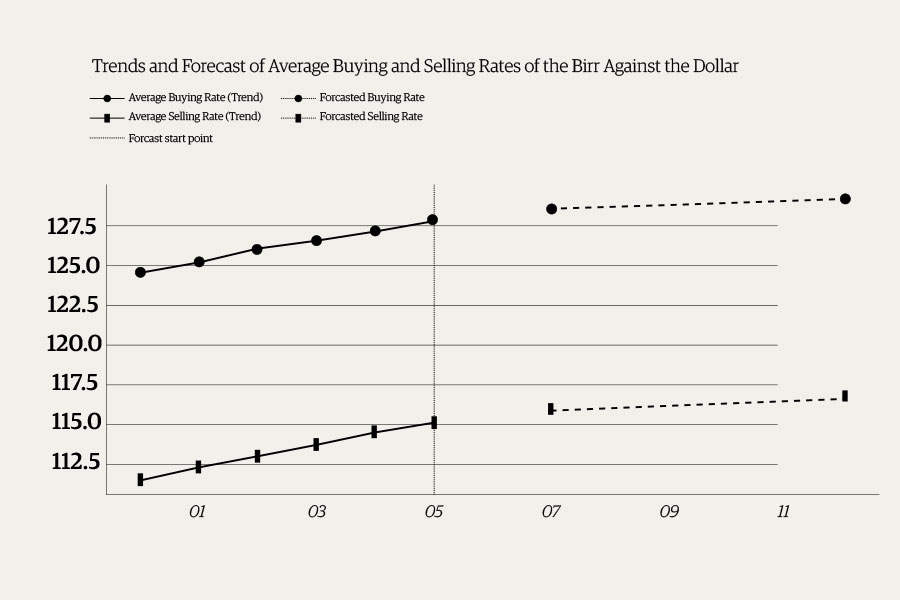
Radar | Feb 24,2024
Petroleum retailers hope to prompt officials at the Ministry of Trade & Regional Integration to increase their profit margin threefold with a study that identifies possible means underway by the Ethiopian Petroleum Dealers Association (EPDA).
They hope to gain a profit margin from 0.88 Br to around 2.50 Br a litre factoring in daily sales, transportation expenses, losses from evaporation and administration costs.
The 500-member-strong Association is comprised of owners from 1,590 fuel stations.
A board member Ephrem Tesfaye argues that profit margins have remained stagnant despite international prices soaring in the past few months. Meanwhile, he underscores the value of the local currency which keeps depreciating adds to the plight.
"We're trying to keep business afloat," he told Fortune.
Albeit the increase from 0.23 Br per litre to 0.88 Br last year, retailers are struggling to keep up with capital costs due to record-high inflation, according to Ephrem. He recommends adjusting the profit margins to create a competitive market and boost productivity through additional investors.
"It's a win-win," he said.
The study will factor in daily fuel output in a station ranging from 50,000ltr to 15,000ltr and use average overhead costs as it makes its way to the Petroleum & Energy Authority (PEA), which will pass it on to the Ministry.
However, the Fuel Products Market Stand Director at the Authority, Lemesa Tulu, indicated that a thorough investigation of the administrative expenses and weekly demand will be required before any recommendations are made.
"It can't be too painful to the end user," he said.
Consumers have been bearing the brunt of the pain from the inflation in international markets as a three per cent price hike to 77.65 Br a litre of Benzene and to 79.75 Br for Diesel was enacted by the Ministry three weeks ago. The price saw increments within a month span which have railed up the market.
Tesfaye Abo, commodities price study & monitoring head at the Ministry, suggests that only half the price of international increments was transferred to customers, with the Ministry carrying the rest.
"It's only a while before international prices move in tandem with local ones," he told Fortune.
A report by the International Energy Agency (IEA) indicates that global markets have been upset by the war between Russia and Ukraine with significant challenges faced as Russia is part of the Organization of Petroleum Exporting Countries (OPEC+).
The decision to cut oil exports by 1.3 million barrels a day has fueled the supply shock.
The Petroleum & Energy Authority has distributed, on average 2.9 million litres of benzene and 9.2 million litres of diesel throughout the period. Officials believe the relatively low price in Ethiopia is a significant contributor to the contraband trade.
The Communication Director of the Authority, Bekelech Kuma suggests the lower rate has paved the way for illicit fuel trading through the national border which has become a growing concern in the regional states.
She stressed that the fuel price stabilisation fund has reached all-time highs of 174 billion Br debt, creating a huge fiscal burden. The stabilisation fund was formed two decades ago to calm sudden hikes in international prices despite Bekelech insisting that it is usually running out.
"Fuel subsidy will be completely removed within five years," she said.
According to the Global Journal of Management & Business Research, smuggling destabilises the legal industry while restraining innovation and investments and reducing government revenues.
Case in point is Worku Belay who struggles to maintain his two gas stations in Debre Birhan and Gonder cities.
He claims operational capital of 40 million Br has doubled over the past two years. Despite averaging sales above 20,000ltr a day, Worku said he is walking on eggshells to avoid insolvency.
"Banks don't give out loans and subsidies are fainting," he told Fortune.
Veterans in the industry such as former CEO of the Ethiopian Petroleum Supply Enterprise, Tadesse Hailemariam, note the importance of looking at several factors before increasing profit margins as the impact will be on consumers.
Tadesse recognises the importance of sensible returns for investors to keep them engaged in business.
"It is a profit-based business after all," he told Fortune.
However, he recommends real-time adjustments of profit margins to reflect international prices instead of basing it on a study.
PUBLISHED ON
Oct 14,2023 [ VOL
24 , NO
1224]

Radar | Feb 24,2024

Fortune News | Nov 07,2020

Fortune News | Jan 23,2021

Fortune News | Feb 01,2020

Money Market Watch | Oct 06,2024

Commentaries | May 02,2024

Fortune News | Jan 05,2020

Radar | Apr 24,2021

Agenda |

Fortune News | Jul 31,2021

Dec 22 , 2024 . By TIZITA SHEWAFERAW
Charged with transforming colossal state-owned enterprises into modern and competitiv...

Aug 18 , 2024 . By AKSAH ITALO
Although predictable Yonas Zerihun's job in the ride-hailing service is not immune to...

Jul 28 , 2024 . By TIZITA SHEWAFERAW
Unhabitual, perhaps too many, Samuel Gebreyohannes, 38, used to occasionally enjoy a couple of beers at breakfast. However, he recently swit...

Jul 13 , 2024 . By AKSAH ITALO
Investors who rely on tractors, trucks, and field vehicles for commuting, transporting commodities, and f...

Jul 5 , 2025
Six years ago, Ethiopia was the darling of international liberal commentators. A year...

Jun 28 , 2025
Meseret Damtie, the assertive auditor general, has never been shy about naming names...

Jun 21 , 2025
A well-worn adage says, “Budget is not destiny, but it is direction.” Examining t...

Jun 14 , 2025
Yet again, the Horn of Africa is bracing for trouble. A region already frayed by wars...